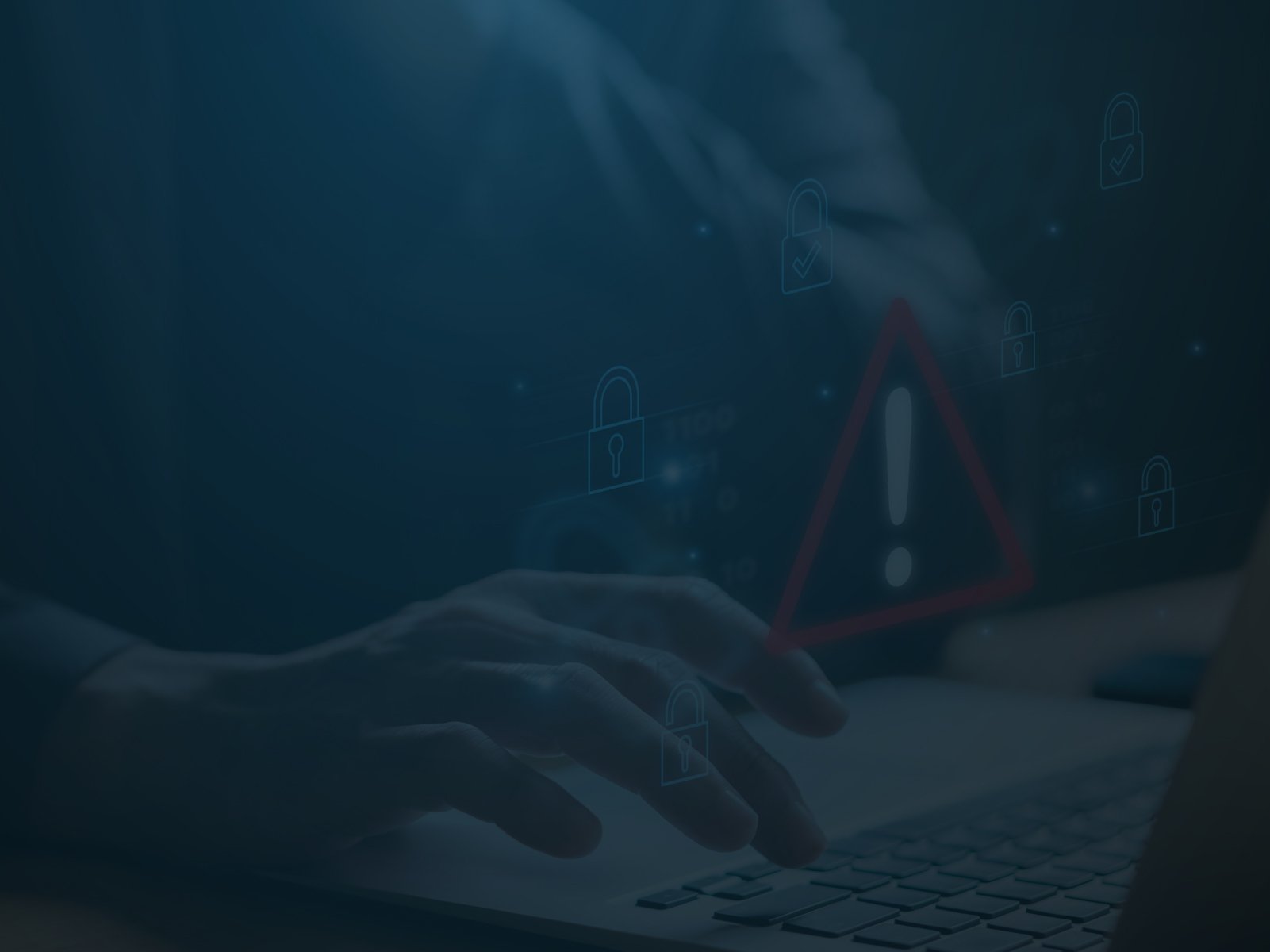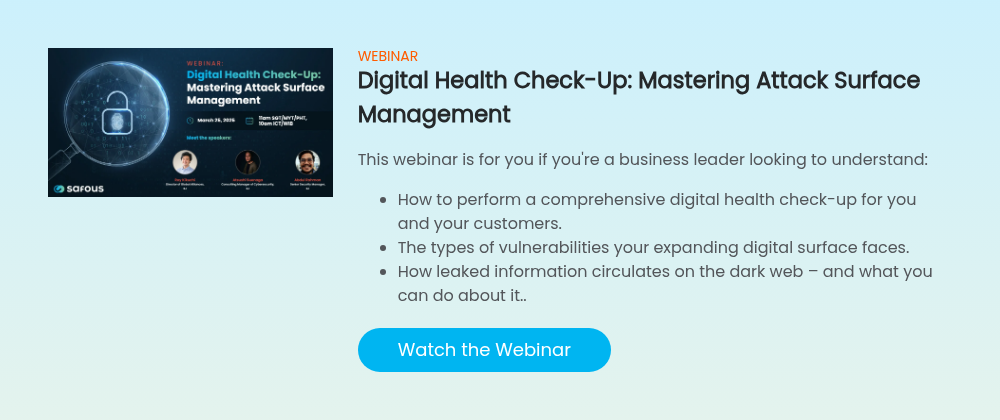Safeguarding your organization's digital assets requires advanced, proactive cybersecurity strategies. With cyber threats becoming increasingly sophisticated, mastering attack surface management (ASM) is a critical step for IT leaders toward transforming your organization’s security posture.
In this blog, we'll break down how attack surface management protects your most valuable assets, along with strategies for managing digital vulnerabilities with ASM.
What Is Attack Surface Management (ASM)?
Attack surface management (ASM) is a cybersecurity strategy that continuously identifies, assesses, and mitigates vulnerabilities across all internet-connected assets – including IT, OT, third-party systems, and shadow IT.
It acts as an external risk detector, identifying exposures in real time and helping you close security gaps before attackers can exploit them.
Why Traditional Cybersecurity Approaches Fall Short
Traditional cybersecurity assessments are only conducted quarterly or annually. While they provide valuable snapshots of your security posture, they fail to account for the dynamic nature of today’s IT environments. As a result, they end up creating blind spots between assessment cycles. 
Here are some reasons why these approaches are failing modern organizations:
- Rapidly Evolving Cyber Threats: Static assessments simply can’t capture evolving threats in real-time.
- Delayed Detection: Discovering vulnerabilities weeks or months after they appear gives attackers time to exploit them.
- Incomplete Visibility: Periodic checks often overlook emerging and transient vulnerabilities.
These limitations create security gaps that modern organizations can't afford, necessitating a more comprehensive approach.
5 Benefits of Real-Time Cybersecurity Monitoring With ASM
One of the most critical steps in securing your organization is understanding how your IT environment looks from the outside – the way attackers do. That’s where attack surface management comes in.
Modern cyber attackers don’t wait for an invitation; they’re continuously scanning the internet to look for exposed assets, misconfigured apps, forgotten test servers, or unsecured APIs. ASM puts your team in the attacker’s shoes so you get the same visibility they have before they strike.
Ultimately, implementing ASM can help your IT teams:
1. See What Hackers See
ASM provides an external view of your organization, so you gain an external attacker’s view to uncover unknown exposures, abandoned assets, and shadow IT before they’re exploited.
2. Protect Brand and Strengthen Compliance
Public exposure of vulnerabilities can damage your brand’s reputation. ASM tools help you maintain audit readiness and align with security compliance frameworks like ISO 27001, NIST CSF, and PCI DSS.
3. Reduce Third-Party and Supply Chain Risk
Your security extends beyond your direct infrastructure. ASM lets you continuously assess the IT hygiene of your third-party vendors and partners to detect inherited risks before they impact your environment.

4. Accelerate Incident Response
When security incidents occur, response time directly impacts the extent of damage. ASM leverages real-time threat intelligence so your teams can remediate threats faster and minimize damage from potential breaches.
5. Maximize Cost Efficiency and Security Posture
Proactive vulnerability management can help you avoid costly downtime and strengthen your organization’s overall cyber resilience. ASM lets you allocate security resources more effectively across both IT and OT systems, creating comprehensive protection.
Steps for Implementing Continuous Attack Surface Management
Implementing an effective ASM program requires a structured approach and ongoing commitment. Here are some steps you can take for a smoother implementation:
Asset Discovery
Identify and catalog all internet-facing assets, including cloud applications, digital services, and endpoints.
Continuous Vulnerability Scanning
Deploy ongoing scans to quickly detect and address any security misconfigurations and vulnerabilities.
Risk Assessment and Prioritization
Evaluate your vulnerabilities based on potential impact and prioritize remediation efforts strategically.
Proactive Remediation
Implement corrective actions to mitigate vulnerabilities identified during continuous monitoring.
Dark Web Monitoring
Monitor the dark web regularly to identify potential leaks and breaches so your teams can quickly remediate them.

How to Address Common ASM Implementation Challenges
While implementing ASM offers significant benefits for cyber risk mitigation, organizations may encounter challenges like:
- Resource Constraints: Security teams often face limited staffing and budgets. Automation and managed security services can help you overcome these limitations, allowing consistent monitoring without overwhelming your internal teams.
- Data Overload: ASM generates a lot of data. Intelligent analytics can help you manage alerts efficiently and focus on genuine threats, reducing security staff burnout and ensuring critical issues receive the appropriate attention.
- Internal Resistance: Building cybersecurity awareness and clearly communicating ASM's business value can help you overcome resistance to new processes or tools. Make sure to demonstrate early wins and highlight prevented incidents to build organizational support.
Transform Your Cybersecurity Strategy With Attack Surface Management
Attack surface management is no longer optional; it's a fundamental part of any effective cybersecurity strategy. Mastering ASM can help your organization proactively protect itself from cyber threats, achieve compliance, manage resources effectively, and significantly strengthen overall security resilience.
Ready to unlock the ultimate defense strategy and secure your digital future? Safous can help. Request your free continuous security assessment today, or access our free on-demand webinar to learn more.
Receive the latest news, events, webcasts and special offers!
Share this
You May Also Like
These Related Stories

Infographic: 5 Reasons For A Cyber Security Risk Assessment

Why You Need To Know Your Security Posture Before The Holidays Hit





